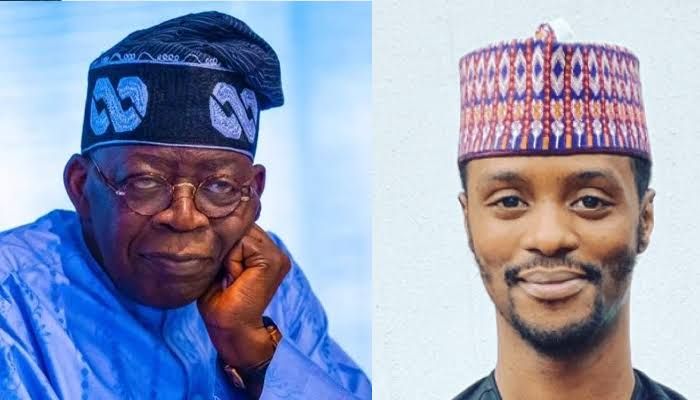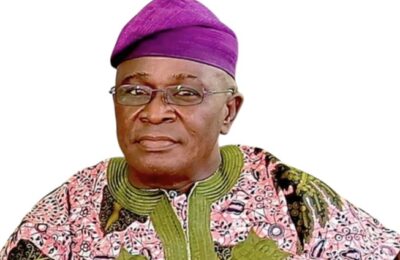The Nigerian state is once again convulsed by the perennial question of unity and restructuring, and this time the controversy bears the face and the fury of Bashir El-Rufai, son of former Kaduna governor Nasir El-Rufai, who detonated a rhetorical bomb by declaring that he does not believe in the esoteric notion of “One Nigeria.” His incendiary remarks, sharpened by a veiled reference to President Bola Ahmed Tinubu as “Escobar,” have forced the country to confront what many elites prefer to tiptoe around: the legitimacy of Nigeria’s present federal architecture, the grievances of its diverse regions, and the perilous intersection of power, memory, and survival.
The political theatre is neither new nor unfamiliar, yet it has acquired an unusually combustible edge. Bashir’s rejection of the national creed struck a raw nerve because it resonated what many whisper privately but fear to articulate publicly — that the supposed covenant of nationhood is frayed, its rituals reduced to hollow incantations, and its promises betrayed by a centralism that disempowers the peripheries. “Regional autonomy can easily solve this situation of blame games. It is crucial as all citizens of said regions would be cognisant of who they can directly hold responsible for their woes,” he wrote on his X account, slicing through the usual equivocations of politicians.
But it was his additional quip — “I don’t believe in this esoteric concept of ‘One Nigeria.’ Escobar & I can agree on that” — that drew the fiercest reactions. By invoking the nickname “Escobar,” a sobriquet long hurled by Tinubu’s opponents to allude to the drug-related forfeiture case of the 1990s in the United States, Bashir transgressed the border between policy critique and personal lampoon. The U.S. court documents are public record: Tinubu forfeited $460,000 to the American government in relation to narcotics trafficking proceeds, though he was never convicted. That forfeiture has remained a ghost trailing his career, revived now by the audacity of a younger generation unafraid of taboos.
This is not the first time regional autonomy has been described in lurid terms. Northern conservatives, wary of the centrifugal forces it may unleash, have branded it a dangerous séance, a witchcraft coven conjured to hex the fragile republic. Senator Adamu Bulkachuwa once thundered on the Senate floor, “This cry for regional autonomy is like a witchcraft meeting, where incantations are disguised as reforms. We cannot return to tribal fiefdoms under the guise of progress.” His metaphor lingers because it resonates with the anxiety of dissolution, a memory still vivid from the civil war of 1967–1970 when the republic nearly bled itself to death.
Yet the irony is exquisite: Tinubu himself, the man now caricatured as Escobar and hailed as custodian of unity, once espoused similar doubts. In an April 13, 1997 ThisDay interview, then in exile, he was quoted as saying: “I don’t believe in One Nigeria.” What was permissible heresy in the wilderness of opposition has become intolerable treason in the palace of power. The past has returned with a mocking sneer, exposing the contradictions of Nigeria’s ruling class.
The logic of restructuring is not arcane. Nigeria once operated a true federation, with the regions enjoying substantial autonomy. That framework nourished healthy competition, fiscal responsibility, and regional pride. The Western Region thrived under Obafemi Awolowo’s visionary policies, the East invested in industrialization, and the North advanced agricultural schemes. But military intervention, centralization of resources, and successive constitutions concentrated power in Abuja, reducing states to beggarly dependents. Advocates of autonomy argue that the current arrangement is untenable — a suffocating unitary system masquerading as federalism.
Former INEC chairman Professor Attahiru Jega put it starkly: “We cannot continue running a unitary system in the name of federalism. Decentralization is the only path to sustainable stability.” Ayo Adebanjo of Afenifere adds his voice with undiminished fire: “Restructuring is not about breaking Nigeria, it is about making Nigeria work. Those opposing it are either ignorant of our history or beneficiaries of a failed system.” Their insistence resonates with millions who see Abuja not as a capital of hope but as a citadel of appropriation.
Yet the counterargument remains trenchant. Critics fear that autonomy is a Trojan horse for secession. They recall how resource control debates in the Niger Delta morphed into militancy, and how the rhetoric of self-determination in the Southeast has fueled separatist agitations. For them, the rhetoric of autonomy is less about reform than about revenge. “Una don chop una national cake come de put eyes for another person own. No be witch be that?” asked Anthony Agada, giving visceral expression to the suspicion that elites only advocate restructuring when excluded from central privileges.
The public square is now alive with raw metaphors. “When two elephants fight, the grass gets trampled,” said Sunny David, encapsulating the dread that ordinary Nigerians will bear the brunt of elite battles. In a more sardonic tone, Aslem Evworhovwo , a young graduate in Sapele, remarked: “As e nor favor dem again make e scatter. Na good development sha,” suggesting that regional autonomy is less a principled crusade than a convenient lever for disgruntled power blocs.
This collision of perspectives reveals the tragic ambivalence of Nigeria’s nationhood. On the one hand, there is an undeniable yearning for justice, inclusion, and efficiency; on the other, there is the haunting fear that decentralization will embolden centrifugal ambitions. The imagery of witchcraft, deployed by opponents, is not accidental. In Nigerian political parlance, witchcraft denotes conspiracies hatched in darkness, sinister plots concealed behind lofty rhetoric. By branding autonomy a coven, critics aim to demonize it as sorcery that must be exorcised rather than examined.
But Bishop Matthew Hassan Kukah of Sokoto cuts through the fog with his pastoral clarity: “Dismissing every call for restructuring as witchcraft is not only uncharitable, it is unwise. We must confront the real issues of justice, inclusion, and fairness.” His intervention reminds the nation that language can either illuminate or obscure, heal or harm.
Bashir El-Rufai’s provocation thus arrives not merely as a youthful tantrum but as a sign of generational impatience. The younger demographic, born after the civil war and raised in the digital agora of social media, is unwilling to genuflect before old shibboleths. They are emboldened to taunt, to mock, to strip sacred cows of their sanctity. For them, the mythology of “One Nigeria” rings hollow in a landscape of unemployment, inflation, insecurity, and corruption. To describe unity as “esoteric,” as Bashir did, is to expose its emptiness when not undergirded by justice.
What complicates matters further is the El-Rufai family’s fraught relationship with Tinubu. Earlier this year, Bashir warned Tinubu against arresting his father over alleged corruption reports, calling such a move “the biggest mistake Pablo Escobar & his henchmen will make.” He ridiculed First Lady Remi Tinubu, praising Peter Obi instead as a potential 2027 presidential victor with “cult-like follower-ship.” These barbs cannot be divorced from the politics of ambition and betrayal that animate Nigeria’s corridors of power. To that extent, the autonomy debate becomes both policy discourse and proxy war.
But beyond elite theatrics, the stakes are existential. Nigeria is hemorrhaging under multidimensional poverty, soaring debt, and pervasive insecurity. Banditry in the Northwest, insurgency in the Northeast, militancy in the Delta, and separatist agitation in the Southeast all point to a country staggering under the weight of unfulfilled promises. In such a climate, calls for autonomy are less an academic seminar than a survival strategy.
The danger lies in dismissing or demonizing the conversation. To call autonomy a witchcraft coven may score rhetorical points but it blinds the nation to genuine grievances. Conversely, to cloak autonomy in the mantle of justice without addressing its risks is equally perilous. The task of statesmanship is to navigate between the Scylla of disintegration and the Charybdis of stagnation.
Nigeria’s past offers sobering lessons. The Willink Commission of 1958 grappled with fears of minority marginalization. The Aburi Accord of 1967 attempted to negotiate confederation before collapsing into war. The 2014 National Conference produced a compendium of recommendations on restructuring that was shelved. Each moment illustrates both the urgency of reform and the peril of evasion. To ignore the debate is to invite its explosion in more violent forms.
What then is to be done? The path forward requires courage, candor, and consensus. Courage to admit that the current federal arrangement is dysfunctional. Candor to recognize that autonomy cannot be a cover for ethnic irredentism. Consensus to fashion a framework where diversity is harnessed, not demonized.
Ordinary Nigerians understand the paradox more keenly than their rulers. The mechanic in Lagos who dismisses autonomy as another avenue for governors to become emperors, and the teacher in Enugu who insists that Abuja has failed and regions must control their resources — both are correct, because both capture fragments of a complex truth. The people oscillate between cynicism and hope, between despair at the greed of leaders and longing for a structure that delivers dignity.
In the end, Bashir El-Rufai’s intervention may be less about his personal animus toward Tinubu and more about a nation’s suppressed voice erupting through unconventional channels. His words sting because they reveal fissures long papered over, contradictions long denied. They remind Nigeria that unity cannot be sustained by mere incantations or sentimental slogans. Unity must be grounded in equity, in fairness, in structures that empower rather than emasculate.
As the debate rages, one thing is certain: Nigeria stands at a crossroads. To retreat into the comfort of witchcraft metaphors is to trivialize the stakes. To weaponize the past of leaders while ignoring the present crisis is to indulge in distraction. The country must choose whether to persist in centralist inertia or to embrace a negotiated autonomy that reflects its plurality.
The grass cannot endure endless trampling by fighting elephants. The citizens cannot forever remain pawns in the chessboard of ambition. Nigeria must summon the wisdom of its elders, the energy of its youth, and the honesty of its conscience. Only then will the nation move from the shadow of witchcraft accusations to the sunlight of genuine reform.
Until then, the words of Bashir El-Rufai and the responses they provoked will continue to reverberate, not merely as political theatre but as an omen — a reminder that when unity is reduced to incantation, autonomy becomes the spell of last resort.
– Inah Boniface Ocholi writes from Ayah – Igalamela/Odolu LGA, Kogi state.
08152094428 (SMS Only)




